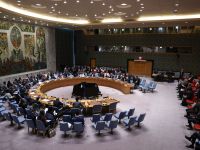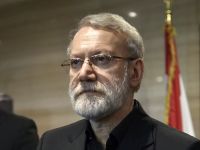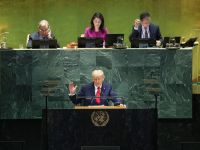Local Arab content for television stations is heavily influenced by advertisers’ support, with television stations not supporting new ideas despite vehement complaints about the lack of creativity and repetitiveness that is widespread in the Arab media, according to Mohammed Hareb, Director and Producer of ‘Lammtara Pictures’ and creator of the popular 3D cartoon series - Freej.
Harib’s comments came during a seminar on ‘Local Content in Arab Media…Its Hopes and Prospects’ held on the second day of Arab Media Forum 2010. The session analysed the future of Arabic content in Arab media, particularly in television and broadcasting.
Recounting the challenges he faced while seeking support from TV networks for Freej, he recommended it would be much easier to support local content generation and creativity if a local fund is set up to support content that reflects on Arab culture and traditions even for established creators.
The panel discussion also looked into whether local content is relevant any more with the reach of distribution extending to areas outside local viewership and how the media content affects overall preference and its reflections on Arab societies.
Usama Al-Sheikh, Head of Egyptian Radio and Television Union clarified the ‘definition of local content’. He said: “Local content is not Arabic language content, or content that has been dubbed into Arabic. The way forward is to provide content that reflects on more universal themes, and not necessarily on themes that originate from the Arab perspective.”
The shift from quantity to a quality offering was an underlying theme of the discussion. Al-Sheikh suggested it would be in the interest of the 700 plus satellite channels from the Arab world to invest in consolidation and collaborations. The production expertise of Western media houses could be commissioned to create content that delivers messages designed by the Arab world.
Moderated by Jumana Bu Obaid, Regional Manager, Rotana Beirut, the session also focused on whether Arabic content can stand up to the onslaught of translated and dubbed movies and television shows; the lessons to be learnt from Egypt’s experiment as a leader in developing and building leading local content; reasons why despite weak advertisement revenues in the Arab region, there still is a high demand for Arabic content in the region and Arabic remains the first choice consumers across the Arab media; the importance of the government’s role in supporting local content, as well as and exploring alternative sources of funding.
Speakers at the session included Osama Al-Sheikh, General Manager, Television & Radio, Egypt; Adeeb Khair, General Manager, Sama Production (Syria); Dr. Saif Al-Islam Al Saoud, Writer, Researcher Journalist; Mohammed Al-Sabaky, President of Sabaka Cinema Production; Mohammed Hareb, Director and Writer, Freej, and Abdul Mohsin Al Bannai, GCC Production Foundation, Kuwait.
Experts regard Arabic content as a challenge while there is a wide consensus on the profound link between the quantity of Arabic content and any media’s ability to generate advertisement revenue.
The third edition Arab Media Outlook released by Dubai Press Club titled ‘A close look into Arab Media 2009-2013’ shows extremely divergent quality and quantity of Arabic content and demonstrates that high quality Arabic content would have a positive impact on revenue.
While the print media has a lion’s share in the region, 90 per cent of the Arabic content is derived from original content written in Arabic and 10 per cent comes from programmes translated content. The report shows that 30-40 per cent of television shows highest in demand on Arabic stations is original content aired for the first time. There is also 30-40 per cent of content that is translated and/or dubbed and 20-40 per cent are reruns and national news.
Held under the patronage of His Highness Sheikh Mohammed Bin Rashid Al Maktoum, Vice-President and Prime Minister of the UAE and Ruler of Dubai, AMF 2010 opened on 12 May at The Atlantis-Palm. Themed ‘Shifting Mediascape: Inspiring Content…Expanding Reach’, the event has brought together more than 2,000 media personalities and experts from Arab countries and across the world.
AMF 2010 has served as a crucial platform for insightful discussions on issues such as citizen journalism, sports media, the media in Asia, Arabic channels’ diffidence to expand into other languages, and the etiquette of debate on live TV.
Under the patronage of His Highness Sheikh Majid Bin Mohammed Bin Rashid Al Maktoum, Chairman of Dubai Culture and Arts Authority, the winners of the third edition of the Sheikh Majid Bin Mohammed Youth Media Awards received their prizes at a gala ceremony on the first day of the forum.
The Arab Media Forum 2010 will conclude with His Highness Sheikh Mohammed Bin Rashid honouring the winners of Arab Journalism Awards, the region’s most coveted distinction for journalistic excellence.
Dubai Media Incorporated (DMI), Arab Media Group (AMG), Nakheel, Dubai Department of Tourism and Commerce Marketing (DTCM) and Emirates airline are the key sponsors for the forum.







